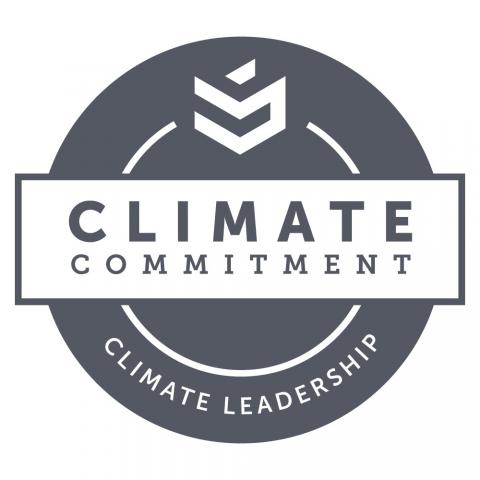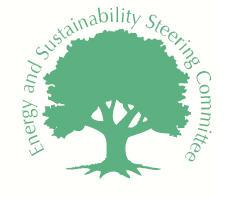Energy and Sustainability Steering Committee (ESSC)
The Second Nature Carbon Commitment has helped to frame our near-term tasks and provide us with some long term goals.This committee is made up of faculty, staff and students with a desire to assist with and have input on university programs and initiatives that revolve around sustainability.
Sustainability is a principle that guides the allocation of resources in a way that meets the needs of the present without compromising the ability of future generations to meet their own needs. Formed in Spring 2007, we have developed an explicit mission statement and strategic plan to guide our decisions.
Our Mission
The mission of the Energy and Sustainability Steering Committee is to implement a balanced focus on sustainability throughout the University within the framework of the Strategic Plan. As an educational institution in a changing world, it is critical that Rider systematically make students, faculty and staff aware of the interrelatedness of the ecological, economic and social dimensions of individual and collective activities. The steering committee will seek opportunities to implement experiential understanding of sustainability throughout the student curriculum, from residence life to the classroom, from internships to research. It will also strategically incorporate sustainable practices throughout Rider’s operational activities, including planning, facility management, purchasing, and labor relations. Work towards this mission will organize and strengthen Rider's strong commitment to environmental stewardship, positively impact the citizenship, lives and careers of our graduates, and cultivate leaders with practical knowledge and experience with sustainability.
Guiding Principles
The following guiding principles, organized according to the strategic directions in the University strategic plan, are the foundation upon which the Energy & Sustainability Steering Committee operates:
- Strengthening student centeredness: Students will be fully integrated into the development and implementation of sustainability goals. Rider University will incorporate sustainability into its teaching, scholarship and experiential learning experiences. Meaningful opportunities will be made available both in the classroom and through the student life experience.
- Advancing academic achievement and leadership skills: Rider University’s ESSC will support and provide guidance to student and faculty led sustainability based organizations and initiatives that impact both the campus and the local and world communities. Rider University will foster ongoing research, and develop opportunities and internships in the area of sustainability and the environment.
- Enhancing connections among the liberal arts, education for the professions, and community: Rider University will foster both interdisciplinary and cross-disciplinary connected learning experiences in the area of sustainability. In the process we will reach out and form partnerships with organizations in the larger community. Connecting liberal arts education with career preparation will bridge theory and practices, thus creating meaningful linkages among curricular elements and to experiences that will help students apply sustainability principles in their lives and careers.
- Fostering diverse perspectives and social responsibility: Through its curriculum and other programs, the University will raise awareness of social, economic, ecological and political concerns related to the environment and global sustainability. By emphasizing sustainability, Rider University will provide opportunities for its students, faculty and staff to better understand and manage the environmental impacts of their personal choices and the University’s operations.
- Building resources for the future: By implementing and continually improving the Energy & Sustainability Master Plan (ESMP), the University will produce energy cost savings, environmental benefits, health benefits, and educational and leadership opportunities. By doing so, the institution will not only become a better steward of its financial resources, but will also contribute to the ability of its faculty, staff and students to address current and future environmental issues.
If you have a great idea about how to involve more students in sustainability, develop academic programs, enhance interdisciplinary understanding of responses to the climate crisis, foster awareness of social responsibility related to sustainability or more effectively build Rider's resources for the future, please contact the committee by sending an email to Melissa Greenberg, Director of Sustainability at [email protected]
For More Information:
LEED Green Associate; Director of Sustainability
General Services Building
megreenberg [at] rider.edu
(609) 896-5000 x7559




